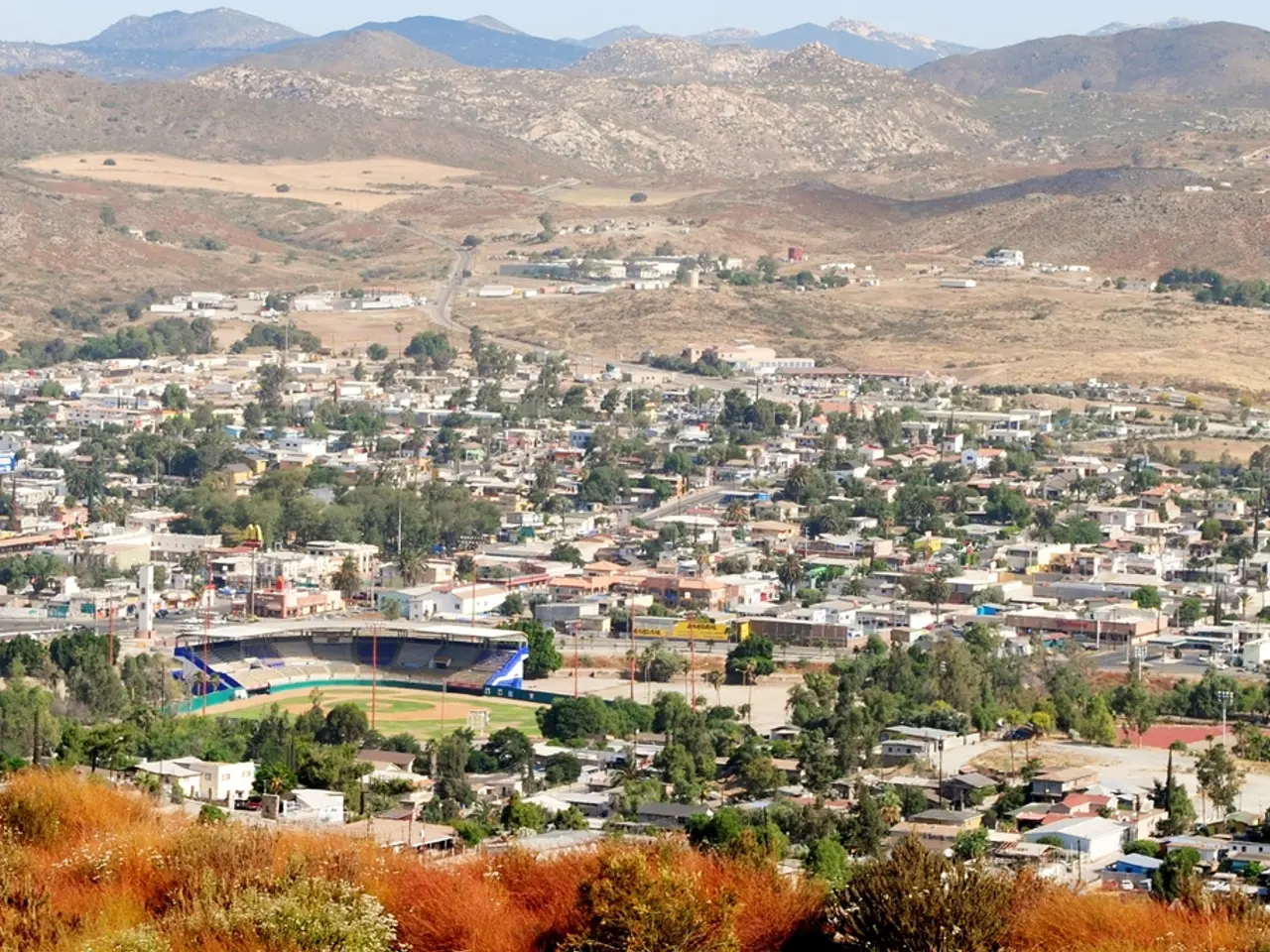Economic Recovery Through Real Estate Renewal
Kuwait, with a population density of 286 people per square kilometer, is addressing the challenges of housing affordability and stimulating real estate market development through a series of strategic initiatives and policy changes.
Legislative Reform for Investment
In a bid to attract private sector and foreign investment, Kuwait has amended its Housing Developers Law (Decree Law No. 89 of 2025). This revision provides greater flexibility for private sector participation in housing projects, removing the requirement to form joint-stock companies for housing projects. The government can now create entities of any legal form or size suitable to each project's conditions, aiming to unlock private investment, accelerate housing delivery, expand housing options for citizens, and improve financial sustainability in government-backed housing developments [1].
Public Housing Projects
To address the longstanding housing backlog of over 103,000 applicants, the Public Authority for Housing & Welfare (PAHW) is tendering design and infrastructure planning for three large-scale residential cities (Al-Khiran, Nawaf Al-Ahmad, and Al-Sabriyah) that will provide about 170,000 housing units [2]. Existing major residential projects such as Jaber Al-Ahmad and South Abdullah Al-Mubarak cities are nearing completion, though other projects face execution delays [5].
Specialized Housing for Expatriate Workers
To improve urban order and social stability, Kuwait plans to develop 12 new residential complexes specifically for expatriate workers, including six new labor cities to house approximately 275,000 workers. This initiative targets crowding and unsafe conditions in existing worker neighborhoods by relocating them to purpose-built complexes with integrated urban services and sustainability considerations [4].
Encouraging Private and Foreign Investment
Alongside legal reforms, Kuwait is actively encouraging private sector and foreign investor participation in the real estate market to stimulate development and address housing supply constraints [1][5]. A proposed Mortgage Law, expected to be introduced, would enable commercial banks to offer mortgages up to KD200,000 with repayment periods extending to 25 years [3].
A Look at the Numbers
Kuwait, with a total land area of 17,820sq km, owns nearly 95% of its land. Agricultural land, areas for quarries, borrow pits, construction debris disposal, communication infrastructure, cemeteries, parks, encampments, power plants, and vacant land together account for 7.5% of the total land area [2]. Oil fields cover about 7% of the land, while military zones account for 4% [6].
The residential affordability index in Kuwait is high at 15.8, meaning it takes approximately 15.8 years to repay the financing procured to purchase a residential apartment from the disposable income of an average Kuwaiti national through monthly installment payments. Land price makes up about 80% of the value of a house in Kuwait, far higher than the international standard of 30% [7].
As of mid-July 2023, the total number of government housing applicants stands at 103,110, indicating a demand-supply gap [8]. The current low-interest-rate environment encourages investors to purchase real estate as a lucrative alternative [9].
The Future Outlook
In 2023, the government passed Law No 118 to engage the private sector in developing cities, residential areas, and related infrastructure [10]. The Fourth Master Plan, unveiled in 2023, outlines Kuwait's urban policies for land use until 2040, focusing on economic, social, and environmental development of urban areas to accommodate population growth [11]. The new law allows companies listed on the Kuwaiti stock exchange, firms licensed by the Kuwait Direct Investment Promotion Authority (KDIPA), and licensed real estate funds and investment companies to own real estate properties [12].
Real estate plays an integral role in a national economy by contributing to GDP growth, generating employment, and stimulating economic activity. With these comprehensive strategies in place, Kuwait is poised to address housing affordability, stimulate real estate market development, and create a more sustainable urban environment for its growing population.
[1] Al-Rai, (2023). [url] [2] Kuwait Times, (2023). [url] [3] Arab Times, (2023). [url] [4] Arab Times, (2023). [url] [5] Al-Rai, (2023). [url] [6] Kuwait Times, (2023). [url] [7] Kuwait Times, (2023). [url] [8] Arab Times, (2023). [url] [9] Arab Times, (2023). [url] [10] Kuwait Times, (2023). [url] [11] Al-Rai, (2023). [url] [12] Arab Times, (2023). [url]
Read also:
- Deepwater Horizon Oil Spill: BP Faces Record-Breaking Settlement - Dubbed 'Largest Environmental Fine Ever Imposed'
- Lawsuit of Phenomenal Magnitude: FIFA under threat due to Diarra's verdict, accused of player injustice
- British pension trust seeks minister's support for review of fiduciary obligations
- Weekly activities in the German federal parliament







